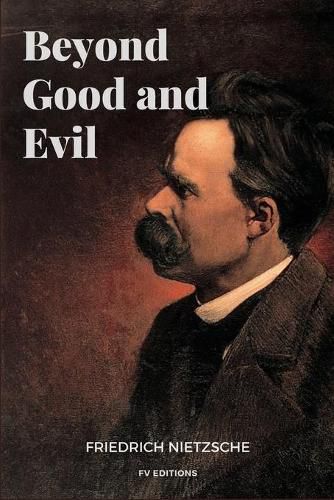Readings Newsletter
Become a Readings Member to make your shopping experience even easier.
Sign in or sign up for free!
You’re not far away from qualifying for FREE standard shipping within Australia
You’ve qualified for FREE standard shipping within Australia
The cart is loading…






This title is printed to order. This book may have been self-published. If so, we cannot guarantee the quality of the content. In the main most books will have gone through the editing process however some may not. We therefore suggest that you be aware of this before ordering this book. If in doubt check either the author or publisher’s details as we are unable to accept any returns unless they are faulty. Please contact us if you have any questions.
The falseness of an opinion is not for us any objection to it: it is here, perhaps, that our new language sounds most strangely. The question is, how far an opinion is life-furthering, life-preserving, species-preserving, perhaps species-rearing, and we are fundamentally inclined to maintain that the falsest opinions (to which the synthetic judgments a priori belong), are the most indispensable to us, that without a recognition of logical fictions, without a comparison of reality with the purely IMAGINED world of the absolute and immutable, without a constant counterfeiting of the world by means of numbers, man could not live-that the renunciation of false opinions would be a renunciation of life, a negation of life. TO RECOGNISE UNTRUTH AS A CONDITION OF LIFE; that is certainly to impugn the traditional ideas of value in a dangerous manner, and a philosophy which ventures to do so, has thereby alone placed itself beyond good and evil.
First published in 1886, the book denounced what Nietzsche considered to be the moral vacuity of 19th century thinkers. He attacked philosophers for what he considered to be their lack of critical sense and their blind acceptance of Christian premises in their considerations of morality and values.
$9.00 standard shipping within Australia
FREE standard shipping within Australia for orders over $100.00
Express & International shipping calculated at checkout
This title is printed to order. This book may have been self-published. If so, we cannot guarantee the quality of the content. In the main most books will have gone through the editing process however some may not. We therefore suggest that you be aware of this before ordering this book. If in doubt check either the author or publisher’s details as we are unable to accept any returns unless they are faulty. Please contact us if you have any questions.
The falseness of an opinion is not for us any objection to it: it is here, perhaps, that our new language sounds most strangely. The question is, how far an opinion is life-furthering, life-preserving, species-preserving, perhaps species-rearing, and we are fundamentally inclined to maintain that the falsest opinions (to which the synthetic judgments a priori belong), are the most indispensable to us, that without a recognition of logical fictions, without a comparison of reality with the purely IMAGINED world of the absolute and immutable, without a constant counterfeiting of the world by means of numbers, man could not live-that the renunciation of false opinions would be a renunciation of life, a negation of life. TO RECOGNISE UNTRUTH AS A CONDITION OF LIFE; that is certainly to impugn the traditional ideas of value in a dangerous manner, and a philosophy which ventures to do so, has thereby alone placed itself beyond good and evil.
First published in 1886, the book denounced what Nietzsche considered to be the moral vacuity of 19th century thinkers. He attacked philosophers for what he considered to be their lack of critical sense and their blind acceptance of Christian premises in their considerations of morality and values.